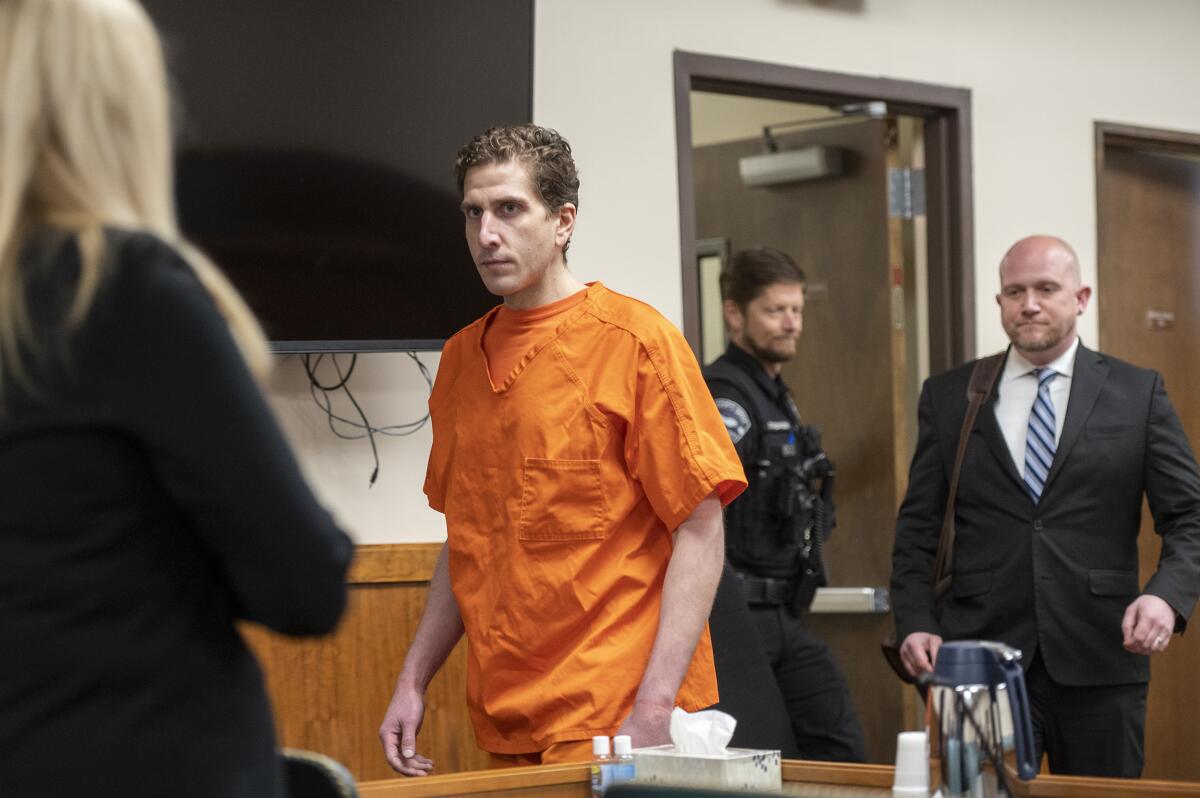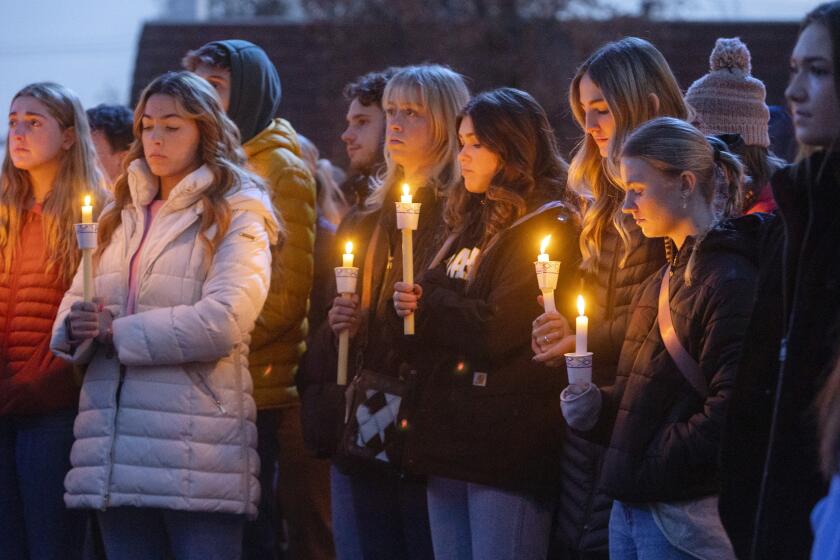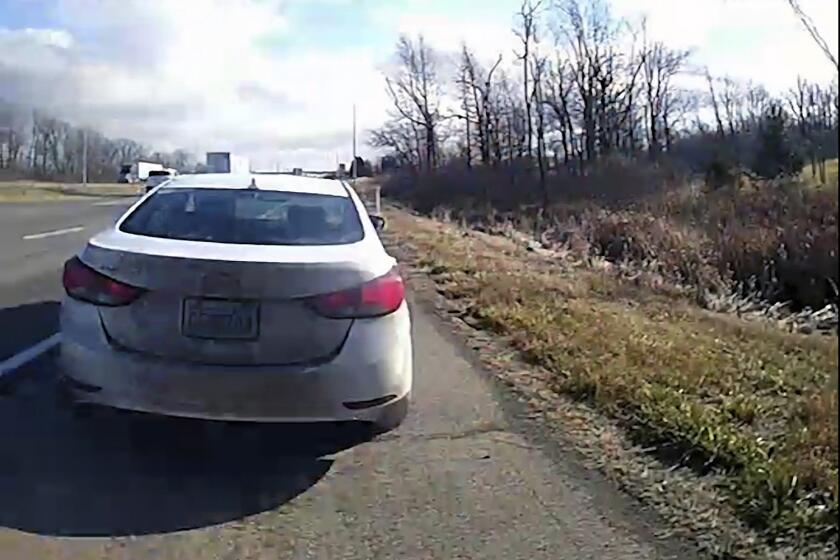Prosecutors seek death penalty for suspect in slaying of 4 University of Idaho students

Prosecutors say they are seeking the death penalty for a man accused of stabbing four University of Idaho students to death in November.
Bryan Kohberger, 28, is charged with four counts of murder in connection with the deaths at a rental house near the university campus in Moscow, Idaho. Latah County Prosecutor Bill Thompson filed the notice of his intent to seek the death penalty in court Monday.
A not-guilty plea was entered in the case on Kohberger’s behalf earlier this year. A hearing in the case is scheduled for Tuesday.
The bodies of Madison Mogen, Kaylee Goncalves, Xana Kernodle and Ethan Chapin were found Nov. 13 at a rental home across the street from the University of Idaho campus. The slayings shocked the rural Idaho community and neighboring Pullman, Wash., where Kohberger was a graduate student studying criminology at Washington State University.
Police released few details about the investigation until after Kohberger was arrested at his parents’ home in eastern Pennsylvania on Dec. 30. Court documents detailed how police pieced together DNA evidence, cellphone data and surveillance video that they say link Kohberger to the slayings.
Investigators said that DNA traces found on a knife sheath inside the rental home matches Kohberger’s and that a cellphone belonging to him was logged near the victims’ home on a dozen occasions before the killings. A white sedan allegedly matching one owned by Kohberger was caught on surveillance video repeatedly cruising past the rental home around the time of the killings.
Four University of Idaho students who were found dead in a rental house Sunday were stabbed to death in their beds and likely were asleep.
But defense attorneys have filed motions asking the court to order prosecutors to turn over more evidence about the DNA found during the investigation, the searches of Kohberger’s phone and social media records, and the surveillance video used to identify the make and model of the car. The motions are among several that will be argued during the hearing Tuesday afternoon.
In an affidavit filed with the motions, defense attorney Anne Taylor said prosecutors have provided only the DNA profile that was taken from traces found on the knife sheath, not the DNA profiles belonging to three other unidentified males that were developed as part of the investigation.
Defense attorneys are also asking for additional time to meet filing deadlines, noting that they have received thousands of pages of documents to examine, including thousands of photographs, hundreds of hours of recordings and many gigabytes of electronic phone records and social media data.
Idaho law requires prosecutors to notify the court of their intent to seek the death penalty within 60 days of a plea being entered. In his notice of intent, Thompson listed five “aggravating circumstances” that he said could qualify the crime for capital punishment, including that more than one murder was committed, that it was especially heinous or showed exceptional depravity, that it was committed in the course of a burglary or other crime and that the defendant showed “utter disregard for human life.”
Authorities say a key piece of evidence in the case of four college students stabbed to death in Idaho in November came from surveillance video.
If a defendant is convicted in a death penalty case, defense attorneys are also given the opportunity to show that mitigating factors exist that would make the death penalty unjust. Mitigating factors sometimes include evidence that a defendant has mental problems, that they have shown remorse, that they are very young or that they suffered childhood abuse.
Idaho allows executions by lethal injection. But in recent months, prison officials have been unable to obtain the necessary chemicals, causing one planned execution to be repeatedly postponed. On Saturday, death by firing squad will become an approved backup method of execution under a law passed by the Legislature earlier this year, though the method is likely to be challenged in federal court.
More to Read
Sign up for Essential California
The most important California stories and recommendations in your inbox every morning.
You may occasionally receive promotional content from the Los Angeles Times.







